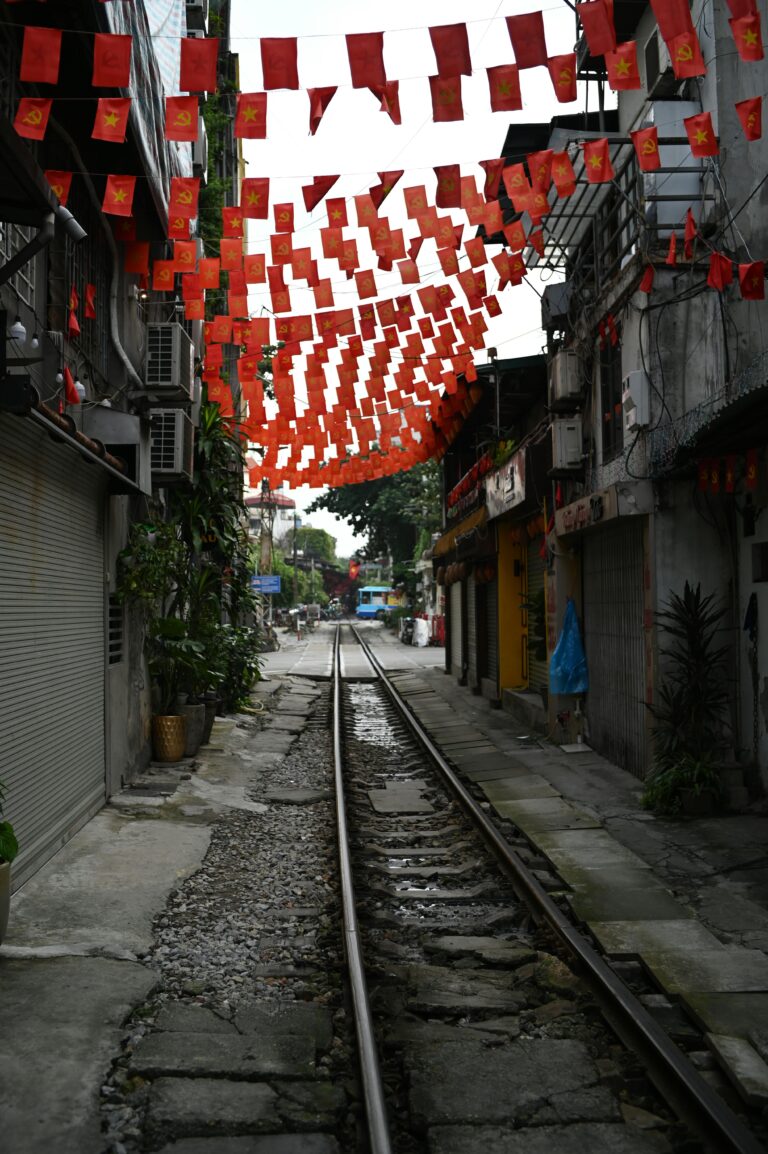Physical Address
304 North Cardinal St.
Dorchester Center, MA 02124
Physical Address
304 North Cardinal St.
Dorchester Center, MA 02124

A Vietnamese business paper provides a fascinating window on land prices – official versus market – in an economy that has partially transitioned from socialism to markets: Hanoi has been collecting public feedback on its first-ever land price list, set…
This is probably my favorite link list yet…enjoy! 1. The WSJ claims that delinquent homeowners can expect to stay in their homes after making their last mortgage payment – that is, they can live rent-free – for at least 16 months. The longer it takes for foreclosures to happen, the longer it will take for real estate markets to adjust to the new paradigm. 2. Fascinating article about food trucks in Houston. In it I found a second example of bad anti-terrorism policy trumping good urbanism: Chimed in Joyce: “We all know that Houston is not a walking city, as much as we wish it was. But there are two areas that are walkable – downtown and the Medical Center. The use of propane trucks is prohibited downtown, however. The regulation was originally put in place as a part of Homeland Security after 9/11, but the Houston Fire Department continues to enforce it. That’s an example of something we’re looking to work with, to allow food trucks to operate in these higher foot traffic areas.” The article also confirms my suspicion that food trucks may actually be safer than restaurants: “These are essentially open kitchens…you can look in there and see exactly what these guys are doing, where they’re grabbing the food from, how they’re cooking it.” 3. Hong Kong and Singapore are both instituting controls on their residential property markets to avoid bubbles, but they are also freeing government land for developers (in spite of Singapore’s free market reputation, most residents apparently live in public housing). Some speculate that Hong Kong’s controls might be a sign of increasing control from Beijing. Reuters says that “China, Singapore, Taiwan, Thailand and Malaysia have also unveiled more stringent regulations in recent months” – the bubble that led to the 1997 financial crisis […]
Apologies to everyone for the light posting – over the next few weeks I may be a bit busy with job and internship applications (any suggestions for work or job offers would be very much appreciated!), but hopefully I’ll still be able to put up a few posts a week. But for now, all you get is this mammoth link dump: 1. Vancouver’s laneway housing program (which we discussed earlier) has been off to a brisk start, and though planners are looking to liberalize sewer rules, they’re also considering only allowing one-story houses as-of-right, and limiting the amount of new laneway houses per block. 2. Former Market Urbanism contributer Sandy Ikeda writes about the urban origins of liberty at the Freeman. 3. The Dukakis Center has released a report suggesting that the gentrification caused by new light rail lines might cause driving to increase, defeating the purpose of TOD. Megan McArdle has also been discussing gentrification. Hopefully I’ll write something about this and gentrification more generally soon, but I wanted to post this in case I don’t get around to it. Any thoughts from the commenters on why this is and how it can be avoided? 4. North Korea “declare[s] war” on its version of the jitney, the “servi-cha.” 5. LA is the only big city in America whose fire department mandates that all skyscrapers have flat roofs so as to allow helicopters to land, but this may be changing (Curbed, parts 1 and 2). 6. Disabled riders file a class-action lawsuit against NYC’s MTA “for not spending a federally mandated 20% of [subway] station rehabilitation budgets on improvements like elevators and ramps.” The ADA’s impact on mass transit and urbanism is something that I’d eventually like to discuss more in depth, but I haven’t seen much research or even many […]
by Stephen Smith I wrote last week about a tendency in developing Asian countries to emulate the most anti-market Western planning policies, but I didn’t realize it was this bad. Paul Barter writes: Would it surprise you to know that some cities control the price of parking even for private-sector off-street parking operations? Beijing, Guangzhou, Hanoi and Jakarta do control parking prices, so I assume the practice is common throughout China, Indonesia and Vietnam. Obviously, the “controlling” is a price cap, not a price minimum, and Barter makes a convincing case that the rates are indeed below the market price. I don’t recall ever hearing about price controls on private parking in the West, but it looks like the urge to come up with new ways to cater to car owners is universal. I should add that Paul Barter’s new blog Reinventing Parking is a must-read for anyone interested in parking policy. He’s based in Singapore and writes a lot about Southeast Asia and China, and has another more general blog called Reinventing Urban Transport.